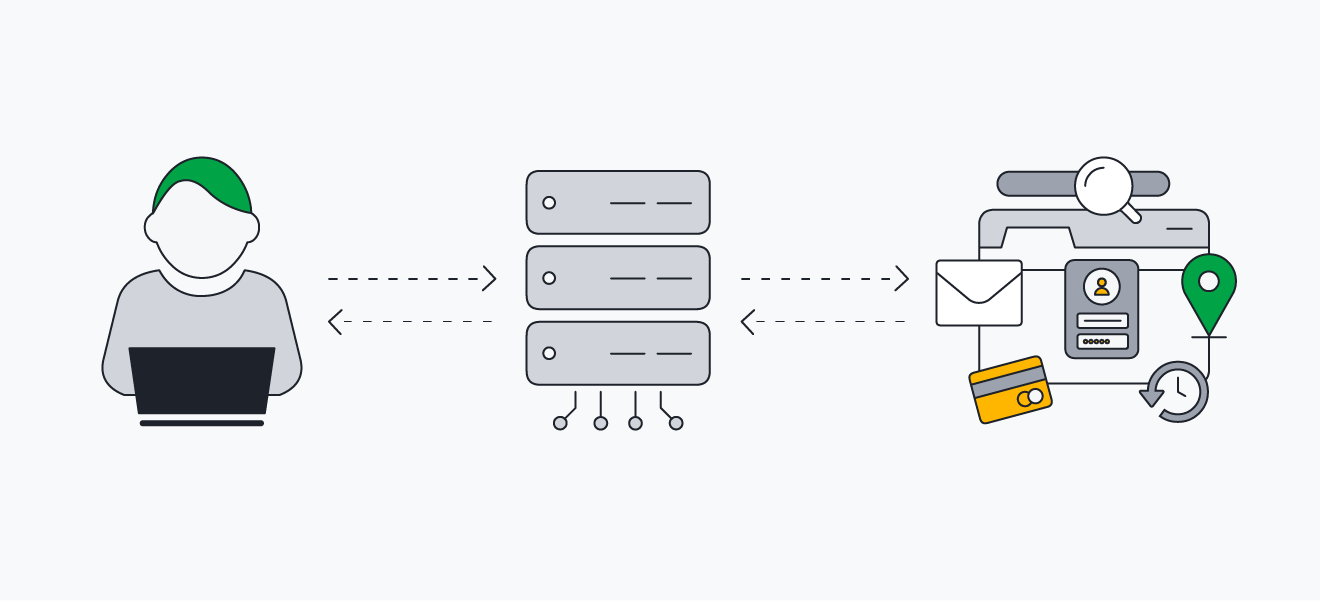Featured
Table of Contents
Proxy Vs. Vpn: What Is The Main Difference?
SOCKS5 is not the like a VPN. Rather, SOCKS5 is a kind of proxy server that's normally utilized for online video gaming, sharing files or video talking on a single website or app. VPNs, on the other hand, encrypt all web activity throughout all websites and apps.
For this reason, some users spend for a personal proxy server which restricts the variety of users that access it, accelerating your connections. Proxies are likewise susceptible to security exploits: they can be open to attack, enabling the bad people to penetrate networks or take private information. Some proxies can still track (and store) your browsing habits, along with recording usernames and passwords rendering that guarantee of anonymity null.
VPNs use a local customer to produce the connection to the VPN server, so any regional CPU or memory issues will decrease the connections. VPNs are usually more costly to use (and maintain) than a proxy server, and they are often more complex to manage. Much like proxy servers, VPNs can't guarantee privacy while browsing.
Your data will be secured to the VPN, however from that point on, it might be unencrypted to the web server. For some websites, this might be unimportant: an information-only webpage with no login or payment options for example, however for any websites that require a login or online payments or any sensitive information make sure the website is allowed to utilize HTTPS.
The Difference Between A Vpn And A Web Proxy
The biggest argument to utilize a VPN rather of a proxy is the total encryption for all traffic you get with the VPN. Dollar for dollar, a VPN is more safe than a similarly priced proxy. VPN companies maintain their own networks and you utilize their IP addresses for your connections.
Personal privacy and security matter nowadays, regardless of if it's your business data or your own personal data you need to secure. Ensure you're investing time and money into the proper tools for your security objectives: both proxies and VPNs add an extra layer of security and privacy to your data.

If your issues are more around "what websites are my users striking," a proxy server is a much better tool. To get the a lot of bang for the dollar (and to safeguard your information as a security-aware citizen), sign up for a well-regarded VPN service. For the a lot of part, VPN services enable you to utilize servers in various areas to work around content constraints.
If you're concerned about your personal privacy when utilizing the web, you may have thought about utilizing either a VPN or a proxy server. Both increase the security of your web connection, but how exactly do they work, and how do they vary? If you are seeking to improve your online privacy, it's crucial to comprehend the distinction in between VPNs and proxy servers to make sure you're selecting the right tool for the job.
Difference Between Proxy Server And Vpn - Youtube
How they accomplish that and the level to which they use other privacy functions varies significantly. Usually, when web browsing, your computer connects to a site directly and begins downloading pages for you to read. This process is uncomplicated. However, when you utilize a proxy server, your computer system sends all web traffic to the proxy initially.
VPNs deal with the os level. This means that they redirect all your traffic, whether originating from your browser or an app. They likewise encrypt traffic between the web and your device. As a result, your Internet Service Provider (ISP) can't see what you're doing online simply that you're linked to a VPN server.


While speeds differ from service provider to supplier, VPNs are typically the much faster option. It isn't an excellent idea to use a totally free VPN service given that they are restricted in what they can provide and tend to mine your data. As an outcome, users tend to select paid-for VPNs, which provide greater data encryption and are more safe and secure.
This indicates that, in general, VPNs tend to be the more pricey choice. VPNs deal with the operating system level and reroute all your traffic through a VPN server, while proxies work on the application level and only reroute the traffic of a particular app or web browser. This indicates that VPNs encrypt all web activity, despite site or app, while proxy servers just conceal one website or app at a time.
Proxy Vs Vpn: Which To Choose And When?
Proxy servers aren't simply used to open particular sites. Certain companies business, schools, or libraries or possibly moms and dads might want to set up a transparent proxy to obstruct or filter users' material when utilizing the web.
Latest Posts
Best Vpn For Business
What Is A Vpn?
Best Vpns For Small Businesses (2023)